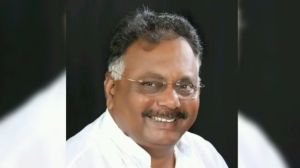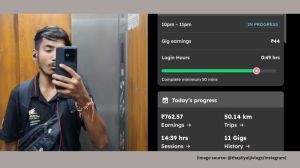Lok Sabha polls decoded: A reading list of 10 pieces on key issues, rows
A compilation of explanatory articles on the entire gamut of polls from across the country
 Here is a list of 10 such pieces to read amid the poll results scheduled for Tuesday
Here is a list of 10 such pieces to read amid the poll results scheduled for TuesdayApart from covering the entire spectrum of the Lok Sabha elections from across the country over more than two months, a team of reporters and editors of The Indian Express also examined key issues and major rows threadbare in order to simplify them for readers. Here is a list of 10 such pieces to read amid the poll results scheduled for Tuesday:
1. The Model Code of Conduct (MCC) immediately came into force following the announcement of the Lok Sabha poll schedule by the Election Commission (EC) on March 16. This article looked into the evolution of the MCC – a consensus document which political parties have themselves agreed upon to keep their conduct during elections in check, and to work within the Code – over the decades.
2. Once among the country’s longest-lasting political allies, the BJP and Akali Dal’s efforts to re-unite ahead of the Lok Sabha polls did not bear fruit eventually. Exploring its reasons, Raakhi Jagga also cast a spotlight on its impact on the two parties as well as other players in the Punjab fray.
3. The arrest of AAP leader and Delhi Chief Minister Arvind Kejriwal less than a month before the elections opened up the door for several possible scenarios and raised crucial questions for the AAP and the larger anti-BJP Opposition bloc. Vikas Pathak dissected these issues to explain the development and its ramifications.
4. Union minister Parshottam Rupala found himself in the eye of a storm soon after launching his campaign as the BJP’s candidate in Gujarat’s Rajkot over his purported remarks that Kshatriya rulers married their daughters with the British. Various Kshatriya organisations reacted angrily and held protests in various parts of the state. Despite Rupala’s apologies, the protests continued for a long time, which the BJP found difficult to quell. Gopal Kateshiya analysed the row in this piece.
5. As part of its vigorous bid to make inroads in Tamil Nadu, the BJP, in the course of its campaign for the state, doubled down on its claims that the Congress government led by Indira Gandhi had given away the Katchatheevu island in 1974 to Sri Lanka and kept this “hidden”. The allegation was first made by state party chief K Annamalai and was then taken up by Prime Minister Narendra Modi, as Liz Mathew noted.
6. On the eve of the Lok Sabha polls, Liz Mathew flagged its major takeaways, listing key poll issues while underlining that the BJP’s campaign would entirely bank on PM Modi. The piece also analysed why the DMK, which pitched the battle as one between the cultural identity of Tamils and the BJP’s Hindutva agenda, is a formidable player in Tamil Nadu, all of whose 39 seats went to polls in the first phase on April 19.
7. As PM Modi, during his campaign, charged that the Congress tried to extend reservation on the basis of religion and give it to Muslims, Sreenivas Janyala and Manoj C G took a close look at this entire row, exploring the Congress’s track record and the previous UPA government’s measures.
8. The Calcutta High Court’s order to cancel the recruitment of almost 26,000 schoolteachers and non-teaching staff (stayed by the Supreme Court later) set off a political firestorm in West Bengal amid the elections, providing the Opposition BJP more ammunition with which to target the ruling Trinamool Congress (TMC). Atri Mitra examined why this development could not have come at a worse time for the Mamata Banerjee-led TMC government, which has faced several corruption allegations since returning to power in the state in 2021.
9. Various castes and communities in Kerala play a crucial role in driving the politics of the leading parties and their alliances. In the elections, from the selection of candidates to the framing of planks to running of their campaigns, the interests and concerns of such communities are factored in by the parties as part of their strategies to retain vote banks and expand bases to the rival turfs in the state, as explained by Shaju Philip.
10. Addressing a poll rally in Dumka, PM Modi accused the JMM-led government in Jharkhand of “patronising infiltrators” who, he alleged, were grabbing land and putting women at risk. He also accused the JMM alliance of indulging in “communal and appeasement politics”, claiming that the term “love jihad” originated from Jharkhand. Abhishek Angad and Deeptiman Tiwary decoded the issues flagged by the PM.
- 01
- 02
- 03
- 04
- 05































